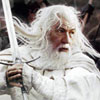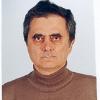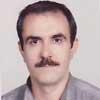I am a senior ChE student and am looking to revisit some of the material from my basic transport, thermodynamics, separations, and reaction engineering classes. I am looking to review the fundamentals with industrial applications in mind and the textbooks I used for many of my classes don't seem to have too much related to practical application (i.e. Bird Steward and Lightfoot for my transport classes). I want to expand my small library of textbooks to include technical references that would help me size basic equipment and design processes. My goal in posting is to get responses from people who have been in industry for a while and probably have a few sources they reference regularly and trust.
Books I have found helpful:
"Troubleshooting Process Plant Control" and "Working Guide to Process Equipment" by Norm Lieberman
"Lectures in Thermodynamics" by Haile
"Plant Design and Economics for Chemical Engineers" by Peter, Timmerhaus and West
"Albright's Chemical Engineering Handbook"
Books I want to buy:
Fluid Mechanics --> "Chemical Engineering Fluid Mechanics" by Darby
Heat Transfer --> "Heat Exchanger Design Handbook"
Any suggestions? Sorry if this is a little open ended but thanks in advance for your responses!
Edited by theleftcoast, 01 February 2010 - 10:17 PM.

 FB
FB














